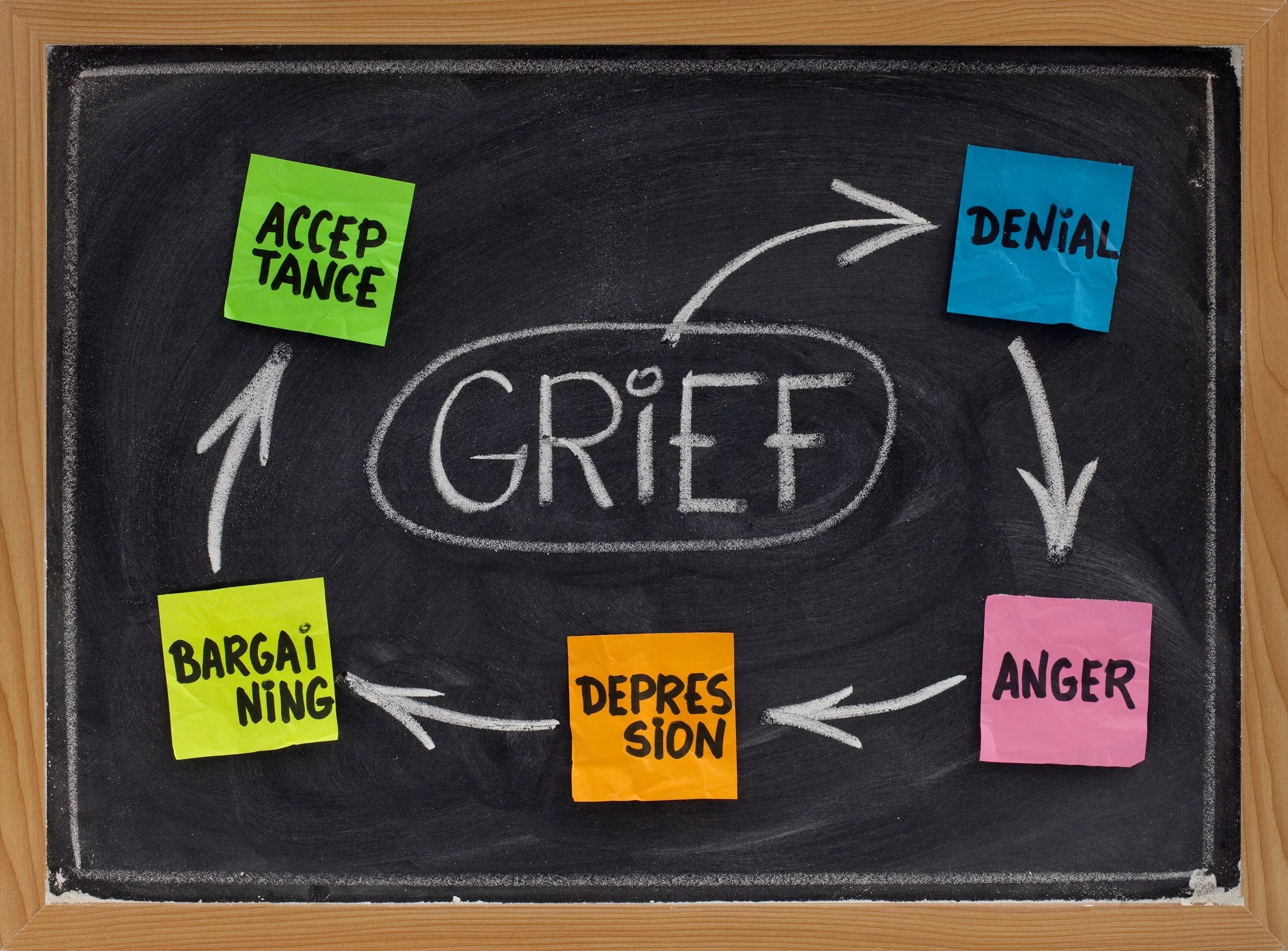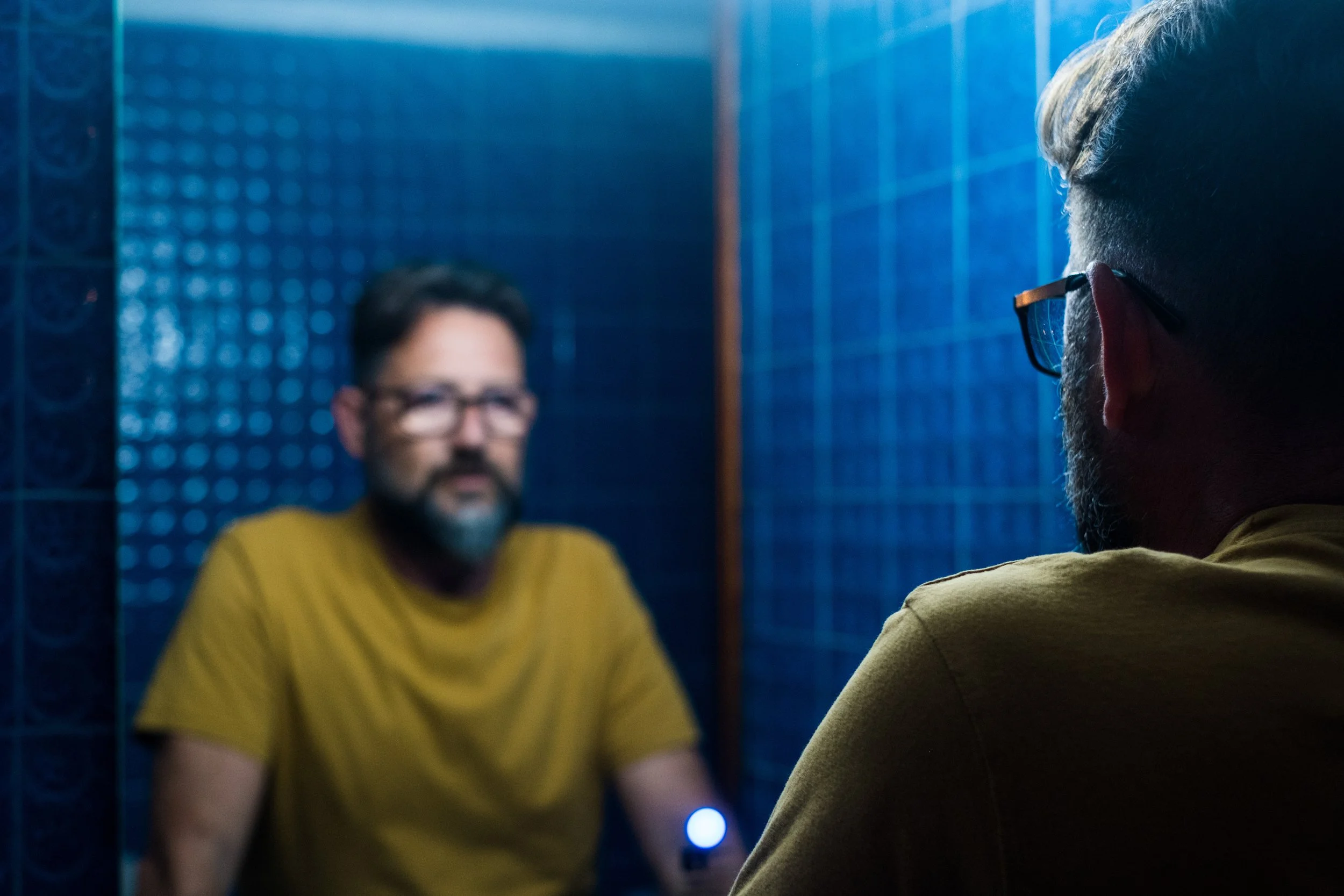
When Dementia Is Not What It First Appears: Understanding Lewy Body Dementia
Author’s Note / Trigger Warning:
The following article discusses neurodegenerative disease, cognitive decline, hallucinations, and loss of independence. This content may be difficult for some readers.
Disease is often an unseen cruelty. Cancer takes bodies. Influenza can take lives. Dementia, however, takes something different. It slowly erodes memory, identity, and recognition. Loved ones fade into unfamiliar versions of themselves. Confusion, agitation, and sorrow become constant companions—not only for the person affected, but for those who love them.
Author’s Note / Trigger Warning:
The following article discusses neurodegenerative disease, cognitive decline, hallucinations, and loss of independence. This content may be difficult for some readers.
Disease is often an unseen cruelty. Cancer takes bodies. Influenza can take lives. Dementia, however, takes something different. It slowly erodes memory, identity, and recognition. Loved ones fade into unfamiliar versions of themselves. Confusion, agitation, and sorrow become constant companions—not only for the person affected, but for those who love them.
Among the many forms of dementia, Lewy Body Dementia (LBD) is particularly devastating and frequently misunderstood.
According to the Lewy Body Dementia Association, LBD affects an estimated 1.3–1.4 million people in the United States, making it the second most common form of degenerative dementia after Alzheimer’s disease. Yet despite its prevalence, it is often misdiagnosed or recognized too late.
What Is Lewy Body Dementia?
Lewy Body Dementia is caused by the accumulation of abnormal protein deposits—Lewy bodies—inside brain cells. These deposits disrupt communication between neurons and affect multiple systems simultaneously, including:
Thinking and attention
Memory
Movement (parkinsonian symptoms)
Sleep
Behavior and perception
Because LBD impacts both cognitive and motor systems, it often overlaps clinically with Alzheimer’s disease and Parkinson’s disease, contributing to frequent misdiagnosis.
Common symptoms include fluctuating cognition, visual hallucinations, REM sleep behavior disorder, spontaneous parkinsonism, repeated falls, and pronounced sensitivity to certain medications—particularly antipsychotics.
A Case Illustration: Jim
Jim was a 68‑year‑old semi‑retired university professor. He was intelligent, quirky, and socially engaging. Over time, subtle changes began to appear.
He became increasingly prone to falls at home. Because Jim occasionally drank alcohol, these incidents were initially dismissed. His wife later discovered impulsive spending on multiple streaming services he could not recall signing up for. He developed unusual nervous movements consistent with parkinsonian symptoms. His speech, once hyperlexic and articulate, became disorganized. His body language no longer matched his words. His posture and gait changed.
Eventually, Jim became hostile, paranoid, and erratic. He reported seeing “angels” and speaking with his deceased brother. At first, clinicians suspected alcohol‑induced psychosis or a primary psychiatric disorder.
It was not until a hospital admission and neurological evaluation that the words “Lewy Body Dementia” were spoken—words that irrevocably altered his wife’s life.
Why Accurate Diagnosis Matters
Lewy Body Dementia is frequently misdiagnosed as Alzheimer’s disease, Parkinson’s disease, or late‑life psychosis. Studies suggest that nearly 80% of individuals with LBD receive an initial incorrect diagnosis, often after years of symptoms.
This misdiagnosis is not benign.
People with LBD are exquisitely sensitive to antipsychotic medications, particularly first‑generation agents such as haloperidol (Haldol). Up to 50% of individuals with LBD may experience severe neuroleptic sensitivity reactions, including rapid cognitive decline, profound sedation, worsening parkinsonism, and potentially fatal neuroleptic malignant syndrome.
In Jim’s case, the administration of haloperidol dramatically worsened his condition—ironically confirming the diagnosis of LBD.
Due to the severity of his symptoms, Jim was unable to return home and now resides in a memory care facility within driving distance of his family.
When Memory Care Is Not Yet Required
Not everyone with Lewy Body Dementia requires immediate placement in memory care. Some individuals retain partial independence and can remain at home with appropriate supports.
Helpful strategies include:
Avoiding over‑the‑counter sleep aids and anticholinergic medications that impair cognition
Reducing clutter and establishing predictable routines for activities of daily living
Minimizing environmental noise and distractions
Avoiding “quizzing” or testing memory
Creating financial safeguards to prevent impulsive spending
Using calm, clear, and non‑judgmental communication
Support should be adaptive, respectful, and grounded in safety rather than correction.
If You Suspect Lewy Body Dementia
Early recognition can reduce harm and improve quality of life. If you suspect LBD, consult with a neurologist or healthcare provider familiar with this condition.
The Lewy Body Dementia Association provides a comprehensive symptom checklist for patients, caregivers, and clinicians:
👉 Lewy Body Dementia Symptom Checklist (PDF)
Final Thoughts
Lewy Body Dementia is not merely a memory disorder—it is a complex, systemic neurodegenerative disease that demands awareness, accurate diagnosis, and compassionate care. For caregivers and families, the journey is often isolating and overwhelming. For patients, the experience can be terrifying.
Knowledge does not erase grief—but it can prevent unnecessary suffering.
References
Lewy Body Dementia Association. (2023). Diagnosing Lewy body dementia is tricky but vital.
BMJ Best Practice. (2025). Dementia with Lewy bodies: Symptoms, diagnosis and treatment.
Lewy Body Dementia Association. (2026). LBD medical alert wallet card and medication warnings.
Dementia Trainer. (2025). Sensitivity to antipsychotic medications in Lewy body dementia.
Frontiers in Psychiatry. (2025). Case report: Lewy body dementia with antipsychotic sensitivity.
Introducing Trailhead Custom Intensives
We’re thrilled to announce the launch of Trailhead Custom Intensives, a new therapy program designed to help individuals and couples reach deep, focused healing. Unlike weekly sessions, Trailhead Intensives offer extended blocks of time, ranging from half-day to multi-day formats, tailored to your unique needs. This approach allows for uninterrupted progress and more opportunities for breakthroughs in areas such as trauma recovery, relationship challenges, and personal growth.
We’re thrilled to announce the launch of Trailhead Custom Intensives, a new therapy program designed to help individuals and couples reach deep, focused healing. Unlike weekly sessions, Trailhead Intensives offer extended blocks of time, ranging from half-day to multi-day formats, tailored to your unique needs. This approach allows for uninterrupted progress and more opportunities for breakthroughs in areas such as trauma recovery, relationship challenges, and personal growth.
Our program includes a complementary consultation, pre-intensive preparation, and post-intensive follow-up to ensure continuity of care. With packages like Base Camp, High Camp, and Summit, you’ll embark on a journey toward clarity and transformation. If you’re ready to invest in quality, customized care that accelerates change, Trailhead Custom Intensives may be the perfect next step.
Learn more and schedule your consultation at Trailhead Custom Intensives. Your path to a new perspective starts here.
Mourning
In graduate school I learned about the stages of grief and loss by Kubler-Ross. These are not frequently known to the general public. In the United States, we typically do not accept the idea of loss well. We protest when our political candidates lose. When we lose we protest the conditions of the lost. Rather, we embrace denial with an almost salient delusion of grandeur: this cannot happen to me!
Trigger Warning: Mentions of Death, Dying, and Suicide.
In graduate school I learned about the stages of grief and loss by Kubler-Ross. These are not frequently known to the general public. In the United States, we typically do not accept the idea of loss well. We protest when our political candidates lose. When we lose we protest the conditions of the lost. Rather, we embrace denial with an almost salient delusion of grandeur: this cannot happen to me!
Mourning is a difficult business. We have a Lincoln Memorial, however the memorializing gets dwarfed by the monument. We have gravestones in cemeteries, yet little actions to process the actual grief get performed. Mourning needs to be planful, intentional, and meaningful.
My first serious brush with death was when a friend of mine: Spc. Kristopher died in Taji, Iraq while serving with the 10th Cavalry. Upon hearing the news, my grandfather told me: “Let’s light a candle for him.” My late grandfather was a USAF Staff Sergeant who served stateside in the Korean Conflict. His act of mourning at the funeral was to salute the closed casket.
When my grandfather passed, my acts of mourning were light a candle, and enjoy some southern comfort food. I lost count of how many orders of biscuits and gravy and chicken fried steaks I consumed in 2022. For me the foods he loved to eat, and share in those morsels of flavor or ‘gravy trains’ of flavor was an avenue to embrace mourning.
Today, on 12.02.2025, I learned Pastor David Bucknam, MA, MDiv, LCPC passed. Dave was one of my favorite colleagues at The Antioch Group Incorporated. Dave was a individual who left a valuable and lasting legacy for all he came into contact with! Dave was a dual citizen of the United States and the Dominion of Canada. To engage in mourning his passing I drank a Tim Horton’s Medium Roast in my keurig instead of my standard Green Mountain/Starbucks/Lavazza rotation.
Mourning is an action. It is a part of life that frequently we do not wish to visit. Like Sassoon’s poem: “No one spoke of him again.” Instead, we need to take into consideration the following words: “Do this in remembrance of me.” That was on my church’s altar as a little boy. We just experienced the month of November, fall is ending, winter’s arrival is premature in Peoria with the ice storms and snow. The Polish people call November: Listopada. Listopada means the falling of the leaves. Watch the leaves fall, and think of them.
The Clock & The Calendar
These are not real names of clients. These are fictional characters rooted in source material from this author’s varied careers in his life before becoming a psychotherapist.
Patrick couldn't stay any longer. With crops to harvest and with matters busy at home, he no longer had time for the Roscoe Stetson Card & Hunt Club that operated outside of Roscoe's old family cabin. Patrick now had a wife and child. Patrick now had responsibilities. Texas Hold Em was now a Hold Up.
Author’s Note: These are not real names of clients. These are fictional characters rooted in source material from this author’s varied careers in his life before becoming a psychotherapist.
Patrick couldn't stay any longer. With crops to harvest and with matters busy at home, he no longer had time for the Roscoe Stetson Card & Hunt Club that operated outside of Roscoe's old family cabin. Patrick now had a wife and child. Patrick now had responsibilities. Texas Hold Em was now a Hold Up.
Jayne couldn't stand her anymore. She whined. The past years of high school cheer and the dance team were gone. She couldn't bear to hear what her old friend had to say. They were now night and day different. She needed to guard her time. People depended on her as the CFO for the farm. There was no more cheer. Her old friend that she was lifted high on the pyramid by no longer held her up.
Bert couldn’t stand it. His organic farming operation, his timeshare in Florida, and his new hybrid vehicle were all collecting greenbacks. The APR on his credit card to finance the hybrid and the timeshare was not an ally at this time. His back up against the wall. His grandfather, if he still were alive would have said the following to him. “Bertie, you can’t go down every road you see. Otherwise, your never gon to get anywhere.” Bert found himself scratching his head as he looked at his bank account app…wondering how he got here.
These are twenty-first century stories of how things change. Frequently we fail to see that when seasons change we must adapt to what we value not what we used to value. Both David, the Psalmist, and the 1960s rock group the Byrds understood this concept well. We come across points where we need to change how we view both the clock and the calendar differently and our dollars differently.
Our decisions reflect our values…what motivates us to success or failure tends to be guided by values. If compassion is a value you have, then compassion is likely to motivate you to go on a humanitarian journey or mission trip to a foreign country where a natural disaster has taken place to provide relief for the effected place and people. If you value family, maybe just being back to your house for dinner before 6pm is a priority. If you value quality, you’re going to be an intentional planner and worker. You’ll be following plans you made closely and you’ll have an ownership on everything you do. If you value faith, you’ll be spending time in prayer and connecting with the Word.
It all has logic, doesn’t it. If you value something, you’ll do it, you’ll chose it. However, in our world of 2025 we tend to get distracted by all sorts of things. Scrolling on our smartphones there’s an advertisement for everything. A distraction for every adult and child on demand. However, these distractions are just free dopamine: a neurotransmitter. Dopamine is a pleasure chemical we get when we engage in certain behaviors. Unfortunately, dopamine has an appeal that we misplace as a priority rather than what we value. Consider those three folks I mentioned at the start of this piece.
Jayne, Bert, and Patrick were all facing different priorities. The old priorities of their past though weren’t going to make it with what they valued currently. A friend of mine is 92 years old. He has written likely 1,000,000 words in his life in various journals, professional magazines, he is a medical doctor by training. He valued preserving and at times saving people’s lives. His life has been a joy filled one as he remained rooted in his values.
Jayne’s old friend, Patrick’s cardsharking, and Bert’s spending were not in alignment with their new values. A pal of mine once said it best: “Hobbies migrate and priorities change as we age.” The reality of this situation is that frequently we must audit what we prioritize to discover if the clock and the calendar are ruling us. If that is the case, we must change our priorities, re-actualize our values, so we manage the clock and the calendar for our best interest and the best interest of our families.
Parasocial Codependency
If you grew up in the 20th Century, maybe you had a Hulk Hogan poster. If you were the political type then, maybe you had a poster of JFK, Eisenhower, Ronald Reagan, Bill Clinton, or James Carville. If you grew up in the 1990s, maybe you had Lisa Frank artwork, Mary Kate & Ashley posters, and perhaps a Super Mario 64 poster. This was the era before the proliferation of the internet and personal computing en masse.
If you grew up in the 20th Century, maybe you had a Hulk Hogan poster. If you were the political type then, maybe you had a poster of JFK, Eisenhower, Ronald Reagan, Bill Clinton, or James Carville. If you grew up in the 1990s, maybe you had Lisa Frank artwork, Mary Kate & Ashley posters, and perhaps a Super Mario 64 poster. This was the era before the proliferation of the internet and personal computing en masse. Fast forward to the 20 teens and the era postpandemic. There’s a different feeling altogether about what the celebrity culture/celebrity objects happen to be across the board. With the tiktok and Instagram era in full force. There’s no need for posters. The content is on its way in real time. Maybe the content isn’t even from a real person. Maybe the influencer is an artificial intelligence.
From a mental health standpoint, who you let in your life is a risky business. As a psychotherapist and a lifelong student of humanity and the human experience. I can say that “I thought they were my friend” can be a famous set of last words or painful words displaying a since of great regret. Unfortunately, some of the worst folks we can let into our life are people we never meet: the influencers. We start to lose sight of what we value. We start to value what we value. The parasocial relationship creates a codependency. A parasocial codependency.
When Susie’s favorite twitch streamer died. She bawled her eyes out. Her husband reached out to her best friend to check on her. Susie was fine. However, Susie’s grief was almost rivalling that of a family member’s. Susie became depressed and her depressive episode lasted a solid month. Despite never meeting this person, Susie found themselves in a deep sorrow for a long time.
When Jim was focused on choosing a college major he didn’t do what he actually wanted to do. He picked up a course of study that his favorite political commentator recommended he do. His favorite commentator kept calling college a scam. He never met this person. But, he figured he’d chose something other than college. He entered a trade school program that he eventually had to drop out of due to an injury. He found himself back in college studying something he had a passion for that led to a career that was more traditional.
Two schools of therapy I pull from frequently to inform my work are dialectical behavioral therapy and acceptance and commitment therapy. Both of these schools of thought lean into the idea of psychological flexibility. Influencers, pundits, commentators, whatever you want to call them can destroy psychological flexibility. Instead of you using your wise mind from DBT or considering what you actually value for yourself via the hexaflex from ACT..you are thinking about what whoever on TikTok, Fox, Instagram, CNN, or MSNBC are telling you to think about. Your thoughts are replaced with whatever you are being told to think about. In an earlier piece I wrote about reparenting, I mention the need to identify your values after toxic parenting. In the 21st century if you are putting your life on hold due to some person telling you about their try on haul from Shein or a political commentator telling you there’s no hope unless you buy into their platform or manifesto without critical thinking….(ignore the man behind the curtain: L. Frank Baum’s Wizard of Oz (1900) you likely need to due some similar interventions to break out of this negative pattern.
Maybe you know someone who is being radicalized by an influencer. If you do, have a conversation about how their parasocial codependency is robbing them of their agency and how the person they are..the original work of art they are, is fading into a product of the dark machinery of this century.
I’m asking you to trust yourself more. Make your own decisions. Put Instagram behind, the news apps away and give your love ones a hug. If you are single, bet on yourself and ask that person out you are interested in. If you are hungry for new realities, bet on yourself. Just take an action, make a move. One of the greatest, yet much maligned, and misunderstood authors of the 21st century Hunter S. Thompson said it best.
“A (person) man who procrastinates in his choosing will inevitably have (their) his choice made for (them) him by circumstance.”
― Hunter S. Thompson, The Proud Highway: Saga of a Desperate Southern Gentleman, 1955-1967
When Life Hits Hard: How Critical Incident Stress Debriefing Can Help
Life is complex enough, but there are moments when it suddenly becomes even more overwhelming. These moments are what we call a crisis. A crisis often feels traumatic, and in an instant, our lives are altered forever. It could be a terrorist attack, a violent crime, a natural disaster, or another event that strikes deeply.
Life is complex enough, but there are moments when it suddenly becomes even more overwhelming. These moments are what we call a crisis. A crisis often feels traumatic, and in an instant, our lives are altered forever. It could be a terrorist attack, a violent crime, a natural disaster, or another event that strikes deeply.
When a crisis happens in a shared space—like a workplace, school, sporting event, or office—it becomes a collective tragedy. For example, when staff at a factory witnessed a coworker injured in a violent industrial accident, the impact rippled through the entire team. Recognizing the need to support their employees, the management reached out to a trained professional to conduct a Critical Incident Stress Debriefing (CISD).
What is a CISD?
As a mental health professional, I facilitate CISDs to help individuals and groups process traumatic events. During a CISD, we discuss what happened, what we are feeling, and how we can begin to heal. The first step is creating a safe, confidential space where participants can openly share their experiences and start to explore the question: “Where do we go from here?”
CISDs are flexible—they can occur immediately after a crisis, a week later, or even years after the event. While a CISD is not psychotherapy, it serves as an opportunity for emotional repair and education, helping participants understand that their reactions are normal. Human beings are not built to handle crises effortlessly, so it’s expected that our emotional and physical responses may feel intense or confusing.
What Happens During a CISD
Sharing Thoughts and Feelings: Participants describe what they experienced and how they are feeling now. This helps normalize their reactions and fosters connection.
Educational Component: We discuss common stress reactions and coping strategies, helping participants understand their responses to trauma.
Questions and Discussion: Participants ask questions, often uncovering insights that strengthen the healing process.
Referrals for Further Support: If needed, participants are connected with mental health professionals for additional care.
A CISD is a starting point for healing, giving people a structured environment to process life when it has thrown its hardest punches. It reminds us that while we cannot always control what happens, we can take meaningful steps toward understanding, connection, and recovery.
Board Games? Bowling?: What are you doing to connect?
“I4, “No.”C2,” “No.” “D9”
I sighed.
“You got it. You found my PT boat.”
For those not in the know, the PT boat is the smallest vessel in the classic strategy board game of Battleship. My wife and I play battleship frequently. Long before I became a counselor, I enjoyed ritual times with my wife that John and Julie Gottmann discuss.
“I4, “No.”C2,” “No.” “D9”
I sighed.
“You got it. You found my PT boat.”
For those not in the know, the PT boat is the smallest vessel in the classic strategy board game of Battleship. My wife and I play battleship frequently. Long before I became a counselor, I enjoyed ritual times with my wife that John and Julie Gottmann discuss. Alongside Battleship, we have also enjoyed bowling. When we connect with each other in ritualized connection times we bid for affection. When we connect, we keep the relationship healthy. When we are having fun with our spouse or partner, we are creating happy memories of enjoyable activities we can look well upon ahead of time.
The connection ritual extends to beyond just couples though. It can mean a family. One of my favorite quotes is the following: “the greatest present is presence.” Spending time together, gathered around a board game, gathered around something other than electronic devices or social media can mean so much, even when it is not initially expressed by those gathered. You are writing good history with your family when you take these actions. Throughout my life, I have been a student of history. When I hear tales of lost opportunities for connection, I quickly see a history that needs to be changed if it is still within the present time. If it is the past, then we must double back and find ways to salvage the future. If you find yourself watching others having fun and you are not with your spouse/partner or family, it isn’t too late to change. You don’t need a New Year’s Eve to consider a resolution. Any day of the year: 365 days is an opportunity to be chosen. Eisenhower said it best in a speech, I’ll paraphrase him: we can greet the day with the handle of opportunity or the handle of anxiety. Perhaps its time to open the doors of tomorrow with the handle of opportunity?
Interested in learning more skills for connecting with your partner? Give our office a call at 309-713-1485. We can help!
Reparenting: Intervention Using 4 Pillars
“Through others, we become ourselves.” Lev Vygotsky’s words are a truth when it comes to family systems. Vygotsky’s zones of proximal development greatly influence my reparenting interventions. There are four pillars to the concept of reparenting that are found in the work of Nicole LePera, who like Vygotsky examines how personalities are formed, frequently it is through family, in particular parents.
“Through others, we become ourselves.” Lev Vygotsky’s words are a truth when it comes to family systems. Vygotsky’s zones of proximal development greatly influence my reparenting interventions. There are four pillars to the concept of reparenting that are found in the work of Nicole LePera, who like Vygotsky examines how personalities are formed, frequently it is through family, in particular parents.
A family reunion is held. Forty relatives of a large family are gathered around a picnic table. Orange juice, and the aroma of barbecue are in the southern summer air as memories are made. Discussions are had of wonderful events in the family’s past: triumphs and tragedies. The gregarious spirit of the gathered is welcoming. There’s two people there who aren’t engaging with the gathered, though. We’ll call them Senior and Junior. Senior is quiet, he married into this family. He doesn’t speak to anyone unless he is spoken too. Junior does the same. Junior grows up and frequently struggles to connect with others. Junior never connected with his mother. Junior’s personality was introverted. His relationships were shallow. Junior grew up alone and frequently found the wrong crowd to hang out with. Junior struggled to find his identity and had many difficulties along the way. He sat across from me and told me his story in a prior practice I worked at.
Junior did not really know what he valued. He didn’t really know himself other than what his father, Senior had taught him. There was next to nothing when it came to his own self-education. There also was a problematic element of favoritism. Remember when I told you that Junior didn’t connect with his mother ever? Well, his older brother connected with her and was the “Golden child of the family.” In the reparenting groups I lead, Junior was able to hear stories of how he was not alone. Others had families where they simply did not fit in. Junior worked through the four pillars of reparenting.
Discipline (Rulebook for your life)
Self-Care (Staying afloat)
Joy (Seeking it out)
Emotional Regulation (Owning your moments)
Junior recognized that it was time to change, Junior pursued counseling, and then Junior began the process of reparenting. He learned his values, wrote his rules, and discovered that he in fact was not Senior. He was someone who needed to walk his own pathway through his life. He found his pathway through the four pillars of reparenting.
Can you relate to this post? Is it time to figure out who you really are? Give our office a call at 309-713-1485. We can help!












